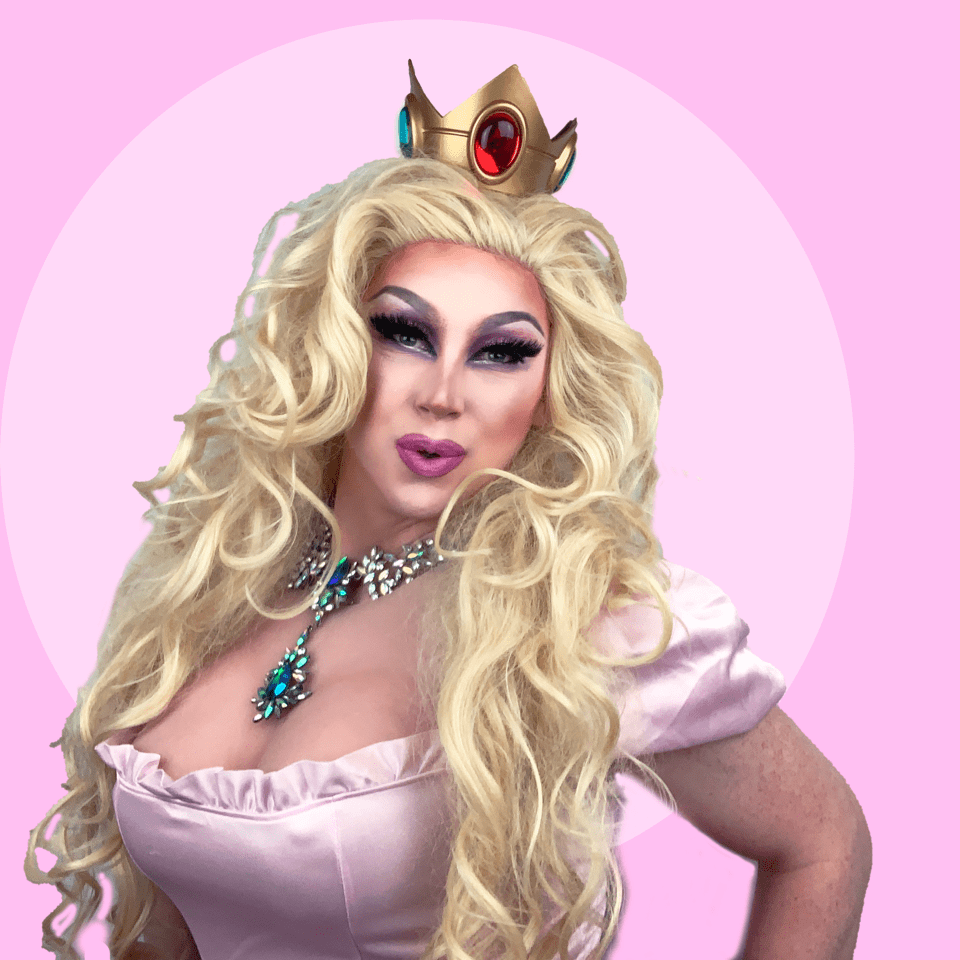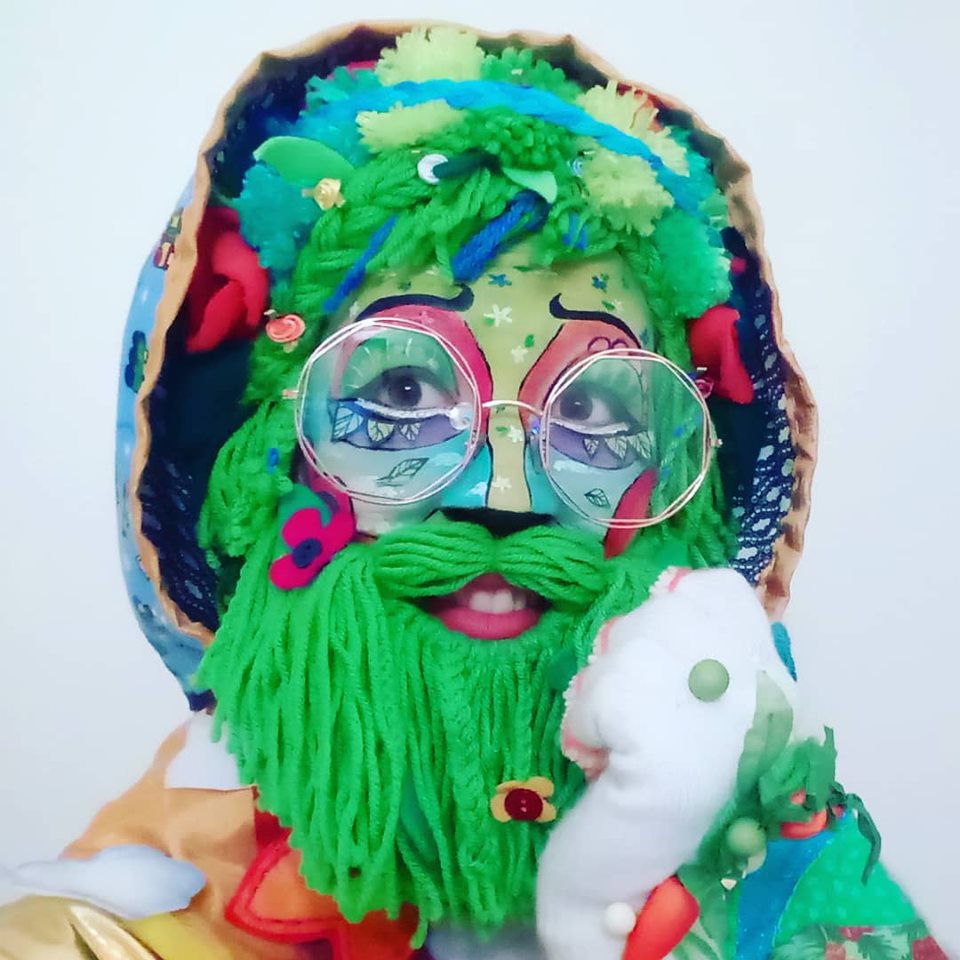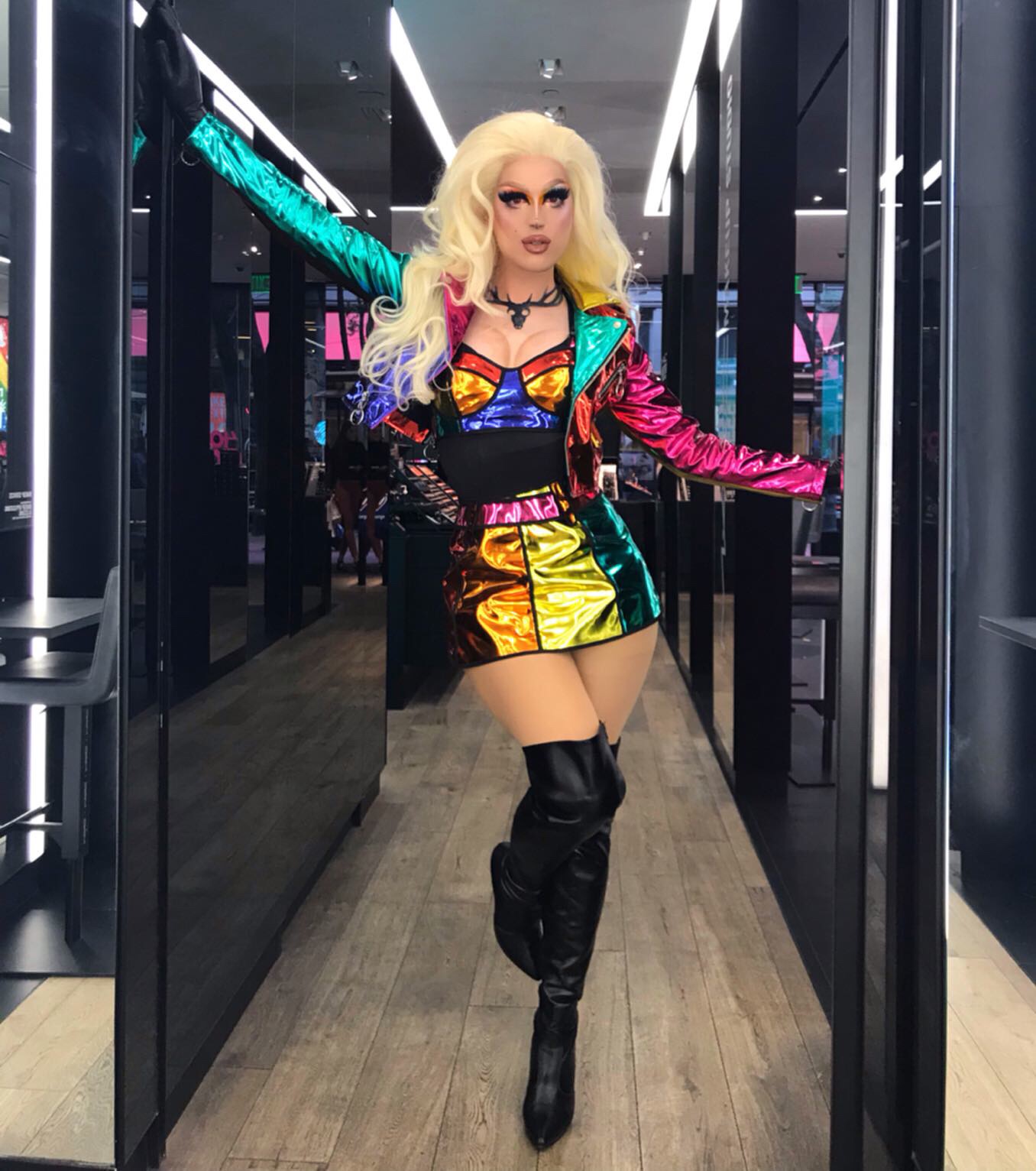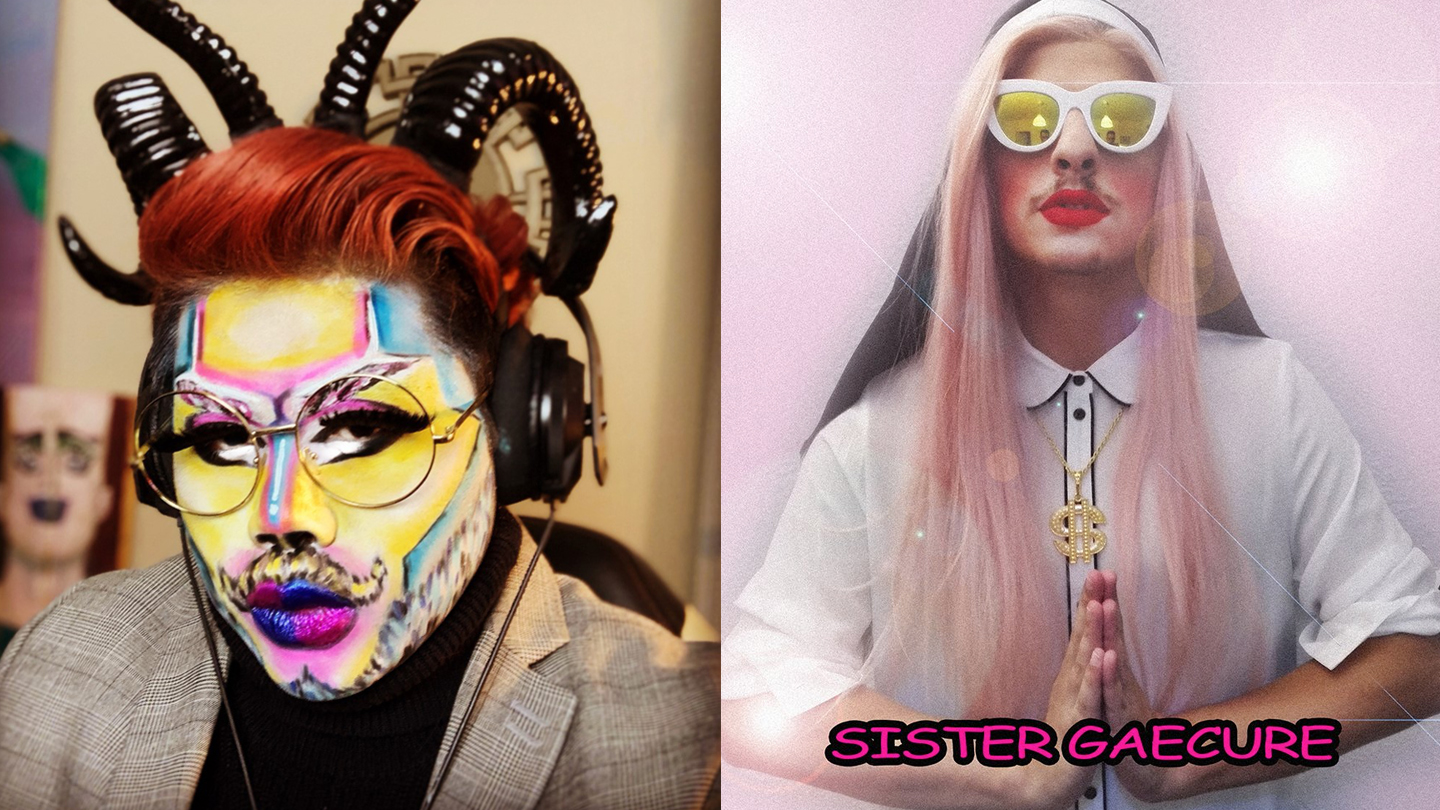“It’s two in the morning and he’s calling me. My fiancé and I are asleep. He called me on my cell phone. He called my fiancé on his cell phone. So now I’m not only scared, but he involves my fiancé. And someone’s knocking really loud at the door and it scares the shit out of me.”
This is Elixa, a drag streamer on Twitch, explaining the story of a cyber-attack from a troll who targets LGBT streamers. “I almost quit streaming when it happened,” she adds, “but I thought of my community and how much of an impact I’ve been making to some people. It took me so long to accept who I was that I will not allow someone to censor me. I’m not gonna let that happen.”
Elixa is a member of The Stream Queens, a group of drag artists who play video games together on Twitch, a social platform for streaming live content. It’s used predominantly by gamers playing games like Fortnite, Overwatch and Apex Legends: they create a channel, film themselves playing on webcam and allow viewers to comment in the chat box. Streams can be open to all viewers or for subscribers only, with the top streamers receiving thousands of dollars in donations and advertising revenue.
The Stream Queens was originally set up by fellow drag queen Deere to unify drag streamers and make drag more discoverable on the platform. Early in 2019, Deere made history when she became the first drag queen Twitch Partner in the US, which gives the user the ability to create their own teams. As a team, streamers can cross-promote each other’s work, grouping together like-minded users under a common theme. And, of course, Deere’s first initiative as partner was to create a team for drag. From its humble beginnings in the US, the team has since grown to almost 30 members worldwide, playing a huge variety of different games while showcasing their drag.
“I started streaming because I have this interest in video games and drag, and if I have the interest, someone else has the interest,” says Deere, who users her online platform to promote safe spaces, and has become well known for her support and kindness. “Online you can find your community no matter what it is. And when I’m streaming, I make sure that my chat is safe, that everybody feels supported and that everybody can be themselves, because I know not everyone had it the way I grew up.”
But as Elixa’s story shows, for every story of kindness and support and community in online gaming there’s also a darker, toxic side to Twitch. Streamers are largely straight white men and trash talk has, sadly, become par for the course. Some of the platform’s top streamers — like Tyler ‘Ninja’ Blevins and Alinity Devine — have been suspended or banned for misogyny and racial slurs. Ninja, who recently left Twitch for rival platform Mixer, had his hugely popular channel overrun by pornography, and that was not long after Twitch themselves sued to identify users uploading videos of the Christchurch attack. Some streamers have even been raided by SWAT teams while live, a result of being targeted by online trolls who lied to local police about the danger they posed.

In particular, LGBTQ streamers are often targeted by trolls, filling their chat with hateful comments. Sadly, traditionally gamers aren’t exactly known for their acceptance of people outside the straight white cisgender norm — after all this is the same community that instigated the Gamergate movement, which attacked women and liberalism in games, as well as the ethics of gaming journalism, and consequently contributed to the rise of the online alt-right. Against that cultural backdrop the the Stream Queens team is vital as a safe haven for both queer streamers and their followers to form a community. It’s an oasis of diversity and positivity: for people to play games, dress in drag and together fight back against the trolls.
It’s that supportive community that got Elixa streaming again after her cyber-attack ordeal. As a drag queen streamer, her channel was targeted and filled with hateful comments by trolls who were immediately blocked by moderators. After the incident was reported to Twitch, the situation escalated when online hate turned to IRL stalking and abuse, a situation eventually resolved by the police.
If anything, this has only made Elixa more resilient. She’s known for being open with her viewers, discussing her battles with depression and anxiety while gaming. That, in turn, has inspired her viewers, who regularly ask questions about overcoming anxiety and coming out, as well as gaming tips. “Now that I’ve started doing drag, I feel so damn blessed and it’s given me so much confidence I can’t even tell you,” she says. “My main message of my stream is that I want to influence people to build their confidence. I want to influence people to love themselves, because I started really late.”
The troupe also includes drag king Ecto Babble — who describes himself as a “space ragdoll” — and explains that as a streamer, there’s an extra layer of difficulty being a drag king. “People will always type in drag queen but they won’t type in drag king,” he explains. “A lot of people don’t know we exist. We try really hard to get out there. Drag queens get so popularised because they’re female characters, [but as a king] you’re trying to look like a guy and stereotypical masculine stuff is not as vibrant or colourful.”
As the team has grown, it’s taken in artists from Europe too. There’s Eevolicious, a queen from Portugal, is known for her irreverent humour and crazy characters, including a Britney Spears parody and a farcical nun named Sister Gaecure. Despite being on the other side of the Atlantic, she feels close to the other queens. “We’ve grown into good friends. We actually give advice to each other,” she says. “I just love the idea of creating the community.”
Though their drag transformations are physically demanding, the queens all agree that as LGBTQ people, streaming in drag allows them to be more confident. “When I do stream in drag my viewers will double,“ says Elixa. “I’m more flirtatious; I’m funnier as a drag queen. The way my body is with the cinched waist and the big tits, I’m able to do more.”

The biggest issue, though, is trolls. “When you mess with gender in a way that is outside what people have decided they want to allow in society, then you get a strong reaction from this small subsection of the community that hate it,” explains troupe member Trashly. “If you stream with an LGBT tag, you’re putting a target on yourself. If you don’t, you’re not really announcing to people that this is a community for you.” It’s here that the team has come into its own, providing a network to discuss their methods of dealing with trolls. “I think that it’s good to handle it with grace and positivity and love and just try to keep it all in a positive space. [Trolls] want a rise. Why would I give them one?” says Deere.

Above all, the Stream Queens team has allowed these drag artists – and more – to join the haven of a loving community. As Trashly explains, “I never had a connection this close with other queens. You hear RuPaul saying a lot you have to find your tribe and I’ve found my tribe; I found these people who I really connect with.” And the community is only growing, with more and more artists joining the team. It’s also extended to IRL friendships, meetings and opportunities. Deere, for instance, is soon to host a special Stream Queens panel for the first time at TwitchCon.
For Elixa, it’s the relationship with her fans that’s so special. “Even though it’s on a gaming platform, I love talking about [mental health issues] because it can change someone’s outlook or just build someone’s confidence a little bit to break through whatever they’re stuck in. That is just so damn rewarding to me.”
